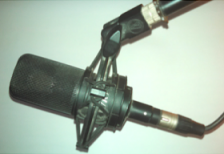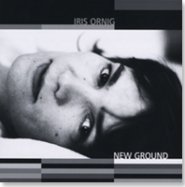![]()
You Say Podcast. I Say Program.
I have been digging into new ways of distributing audio. The reason is simple; relative to consuming audio online, there is fragmentation to degrees that we've not seen. Add to this, we're watching a growing number of big online companies against a dwindling number of smaller ones, which mirrors the terrestrial radio world.
|
Distributing audio is different than a few years ago. Anyone can start a radio station online. There are plenty of stream providers to help. However, with dropping of the Small Webcaster Settlement Act (SWSA) from December's CRB mandate, the cost of streaming will grow. Advertising sales alone will not be enough to recoup expenses as you grow audience. The playing field is no longer level. |

|
At one time you would choose a streaming provider and use its resource for distributing your audio. With today's competition, being accessed through multiple outlets is required.
There are podcasts; but there's more buzz coming from the people providing podcasts than there is coming from the people using podcasts. Here's why: Anyone can sit behind a microphone and produce a program. Few people are able to make a program that draws an audience, consistently. Even with hype from "Serial," as a business, podcasting needs another ten years to become mainstream.
Evidence of not much change in podcasting is this: Both of the above italicized sentences appeared here on November 14, 2005. That little has changed is why I'm now "digging into new ways of distributing audio."
Move away from how a music, interview or a talk "show" has been put together. Focus on its distribution. That's today's problem.
In April 2014, I started submission of Audio Graphics' "Intro to Indie Artists" programs to a variety of podcast distributers - 17 different web sites. Only 3 are operational today.
It's been a tough couple of years for podcasting, possibly because its name needs a more precise wording (like, "video on demand"). Bridge Ratings' Dave Van Dyke observed "First thing: change the nomenclature. The word 'podcasting' was derived as a mix of Apple's iPod and 'broadcast'." I agree.
The terms podcast, podcasting and podcaster lack description of content. Their etymology will always be attached to the iconic iPod, and that unit is as outdated today as a company with "dot-com" in its name.
In 2016 we have a higher number of options-for-distributing audio product than types of audio being distributed. Audio producers use radio stations, self-release, on-demand, podcast, social media and playlists.
I have hundreds of music programs which online stations play and individuals listen to through iTunes (or other distributors). Fans do direct download. Are any of these "podcasts"? No. For now I call them "Music Shorts."
Let's leave with another quote from a 2005 Audio Graphics article: Podcasting is today's buzzword. It means a vast ocean of content. It doesn't mean being found or listened to with enough frequency to reach the masses.
Sunday, February 14, 2016

Today's artist introduction is to Jazz from Iris Ornig.

Give "New Ground" a listen.
Stations: Add it to your playlist, free.




